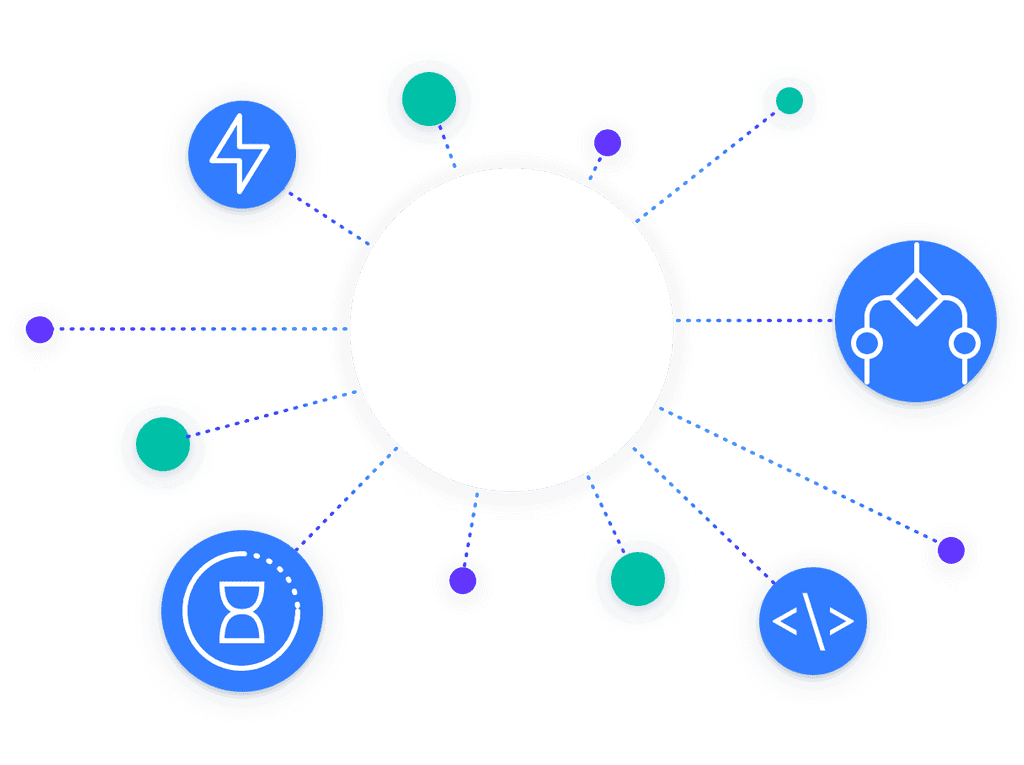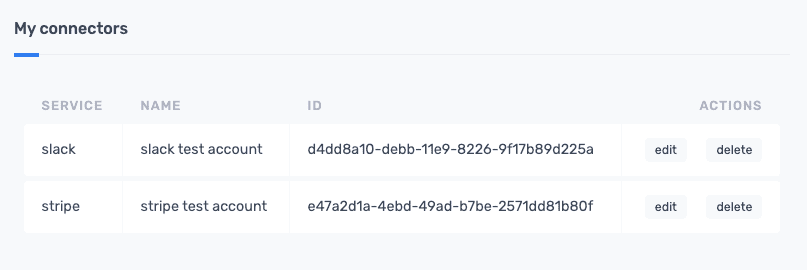Quickbooks API
Intuit QuickBooks Small Business is small business financial software supporting start-ups track, organize, and manage their finances.
View Quickbooks API docs
Use the Quickbooks Connector
Add the quickbooks connector on your Zenaton dashboard,
enter the credentials and authorize Zenaton to call the quickbooks API from your workflows.
Then add code snippet and URL path to your workflow.

const { workflow } = require("zenaton")
module.exports = workflow("MyWorkflow", function* () {
const quickbooks = this.connector(
'quickbooks',
'connector-id')
const response = yield quickbooks.get('path_to_API')
const params = {body: {param1: '...'}}
yield quickbooks.post('path_to_API', params)
})The Zenaton Engine
We handle the complexity of orchestrating Quickbooks API calls and related logic in your code.

Out of the Box API Call
Add the connector to your Zenaton workflow and we manage the authentication, oauth1 and oauth2 flow including token refreshing.

Automatic Retries & Alerting
If your Quickbooks API call fails, it can automatically be retried and you will receive an alert with error details.

Monitoring and Troubleshooting
View the Zenaton dashboard for execution history, scheduled tasks, errors and logs or retry failed Quickbooks API calls.
Integrate Quickbooks into your application logic
The Zenaton connector is a pre-configured task for calling the Quickbooks API inside your workflow with one line of code. Build custom integration logic by adding a workflow directly into your application using the functions in the Zenaton SDK.
// The Zenaton engine orchestrates quickbooks API calls and related logic via the Zenaton agent. Every step is executed at the right moment on your servers and monitored on Zenaton dashboard.
const { workflow } = require("zenaton");
// quickbooks authentification on Zenaton
module.exports = workflow("ParallelWorkflow", function* () {
const quickbooks = this.connector(
'quickbooks',
'your-connector-id-from-zenaton-dashboard'
);
// execute parallel tasks handled automatically by the Zenaton engine
const [a, b] = yield this.run.task(["TaskA"],["TaskB"]);
if (a > b) {
const response = yield quickbooks.get('path_to_API');
} else {
yield this.run.task('TaskD');
}
});
const { workflow } = require("zenaton");
// quickbooks authentification on Zenaton
module.exports = workflow("AsynchronousWorkflow", function* () {
const quickbooks = this.connector(
'quickbooks',
'your-connector-id-from-zenaton-dashboard'
);
this.run.task('TaskA');
this.quickbooks.post('path_to_API');
yield run.task('TaskB');
yield this.run.task('TaskD');
});
// Tasks can be automatically (or manually) retried and executions are displayed in real-time on the Zenaton dashboard.
const { workflow, duration } = require("zenaton");
// quickbooks authentification on Zenaton
module.exports = workflow("WaitWorkflow", function* () {
const quickbooks = this.connector(
'quickbooks',
'your-connector-id-from-zenaton-dashboard'
);
yield this.run.task('TaskA');
// The 'wait function is managed by the Zenaton engine and will be executed on your worker at the right time.
yield this.wait.for(duration.days(7));
yield quickbooks.get('path_to_API');
});
const { workflow, duration } = require("zenaton");
module.exports = workflow("WaitEventWorkflow", function*() {
const quickbooks = this.connector(
'quickbooks',
'your-connector-id-from-zenaton-dashboard'
);
// Wait for up to 24 hours for the event using the Zenaton Wait Function.
const event = yield this.wait.event("MyEvent").for(duration.hours(24));
if (event) {
// If event has been triggered within 24 hours
yield this.run.task('TaskA');
} else {
// else calls quickbooks API
yield quickbooks.get('path_to_API');
}
}
});
Start building workflows
Sign-up and run a sample project Learn more
Zenaton
Product
Resources
Zenaton Examples